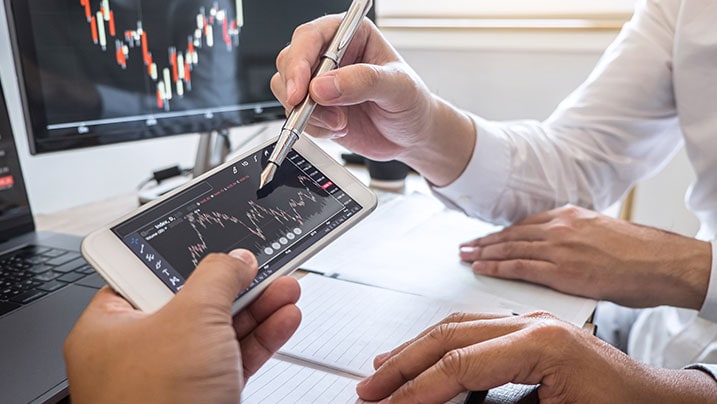CKYC Registry
-
Customer Service Contact us Service request Locate a branch
Find all the help you need
Scan the QR, get our app, and find help on your fingertips

Help CenterSupport topics, Contact us, FAQs and more
-
Login
Are you ready for an upgrade?
Login to the new experience with best features and services
-
Login
Are you ready for an upgrade?
Login to the new experience with best features and services
- Accounts
-
Deposits
IDFC FIRST Bank Deposits
View all Deposits -
Loans
IDFC FIRST Bank Loans
View all Loans - Wealth & Insure
-
Payments
IDFC FIRST Bank Payments
View all Payments -
Cards
IDFC FIRST Bank Cards
View all Cards - Blogs
- Corporate Account
-
Cash Management Services
IDFC FIRST Bank Cash Management Services
View all Cash Management Services - Supply Chain Finance
-
Corporate Lending
IDFC FIRST Bank Lending
View all -
Treasury
IDFC FIRST Bank Treasury
See more details - NBFC Financing
Support topics, Contact us, FAQs and more
- IDFC FIRST Bank Accounts
-
Savings Account
-
Corporate Salary
Account -
Senior Citizens
Savings Account -
First Power
Account -
Current Account
-
NRI Savings
Account -
TASC Institutional
Account -
Savings Account
Interest Calculator
- IDFC FIRST Bank Deposits
-
Fixed Deposit
-
Recurring Deposit
-
NRI Fixed Deposit
-
Safe Deposit Locker
-
FD Calculator
-
RD Calculator
- IDFC FIRST Bank Loans
-
Personal Loan
-
Consumer Durable
Loan -
Home Loan
-
Business Loan
-
Professional Loan
-
Education Loan
-
New Car Loan
-
Pre-owned Car Loan
-
Two Wheeler Loan
-
Pre-owned Two
Wheeler Loan -
Commercial Vehicle
Loan -
Gold Loan
-
Loan Against Property
-
Loan Against Securities
-
Easy Buy EMI card
-
Personal Loan
EMI Calculator -
Education Loan
EMI Calculator -
Home Loan
EMI Calculator
- IDFC FIRST Bank Wealth & Insure
-
FIRST Select
-
FIRST Wealth
-
FIRST Private
-
Mutual Funds
-
Sovereign Gold Bond
-
Demat Account
-
Term Insurance
-
Life Insurance
-
Health Insurance
-
General Insurance
-
Bonds
-
Loan Against
Securities -
Portfolio Management
Service
- IDFC FIRST Bank Payments
-
FASTag
-
Credit Card
Bill Payments -
UPI
-
Funds Transfer
-
Forex Services
-
Pay Loan EMI
- IDFC FIRST Bank Cards
-
Ashva :
Metal Credit Card -
Mayura :
Metal Credit Card -
FIRST Millennia
Credit Card -
FIRST Classic
Credit Card -
FIRST Select
Credit Card -
FIRST Wealth
Credit Card -
FIRST WOW!
Credit Card -
Deals
-
Debit Cards
-
Co-branded Cards
-
Credit Card
EMI Calculator -
FIRST Corporate
Credit Card -
FIRST Purchase
Credit Card -
FIRST Business
Credit Card
- Premium Metal Credit Cards
-
AshvaLifestyle1% Forex₹2,999
-
MayuraLifestyleZero Forex₹5,999
-
FIRST PrivateInvite Only
- Best for travellers
-
MayuraZero ForexMetal₹5,999
-
Ashva1% ForexMetal₹2,999
-
FIRST WOW!Zero ForexTravelLifetime Free
-
FIRST SWYPTravel OffersEMI₹499
-
FIRST Select1.99% ForexLifestyleLifetime Free
-
FIRST Wealth1.5% ForexLifestyleLifetime Free
-
Club VistaraTravelLifestyle₹4,999
-
IndiGo IDFC FIRST Dual Credit CardTravelLifestyle₹4,999
- Max benefits, Free for life
-
FIRST Classic10X RewardsShoppingNever Expiring Rewards
-
FIRST Millennia10X RewardsShoppingNever Expiring Rewards
-
FIRST Select10X RewardsLifestyle1.99% Forex
-
FIRST Wealth10X RewardsLifestyle1.5% Forex
-
FIRST WOW!RewardsTravelZero Forex
-
LIC ClassicRewardsInsuranceShopping
-
LIC SelectRewardsInsuranceShopping
- Reward Multipliers
-
AshvaLifestyleMetal₹2,999
-
MayuraLifestyleZero Forex₹5,999
-
FIRST ClassicNever Expiring RewardsShoppingLifetime Free
-
FIRST MillenniaNever Expiring RewardsShoppingLifetime Free
-
FIRST SelectNever Expiring RewardsLifestyleLifetime Free
-
FIRST WealthNever Expiring RewardsLifestyleLifetime Free
- Rewards & Credit on UPI
-
FIRST Power+FuelUPI₹499
-
FIRST PowerFuelUPI₹199
-
FIRST EA₹NVirtual1% Cashback₹499
-
FIRST DigitalVirtualUPI₹199
-
IndiGo IDFC FIRST Dual Credit CardUPITravelDual cards
- Fuel and Savings
-
FIRST PowerRewardsUPI₹199
-
FIRST Power+RewardsUPI₹499
-
LIC ClassicRewardsInsuranceShopping
-
LIC SelectRewardsInsuranceShopping
- Express and Flaunt
-
AshvaMetal1% Forex₹2,999
-
MayuraMetalZero Forex₹5,999
-
FIRST SWYPEMIOfferMAX₹499
-
FIRST MillenniaRewardsShoppingLifetime Free
- FD Backed rewarding Credit Cards for all
-
FIRST EA₹NVirtualCashback₹499
-
FIRST WOW!Zero ForexTravelLifetime Free
-
CreditPro Balance TransferTransfer & SaveReduce InterestPay Smartly
- IDFC FIRST Bank NRI Forex Solutions
-
Send money to India-Wire transfer
-
Send money to India-Digitally
-
Send money abroad
-
Max Returns FD (INR)
- IDFC FIRST Bank MSME Accounts
-
Platinum Current
Account -
Gold
Current Account -
Silver Plus
Current Account -
Merchant Multiplier
Account -
Agri Multiplier
Account -
TASC Institutional
Account -
Dynamic Current
Account -
World business
Account -
First Startup
Current Account
- IDFC FIRST Bank Business Loans
-
Business Loan
-
Professional Loan
-
Loan Against Property
-
Business Loan for Women
-
Working Capital Loan
-
Construction Equipment Loan
-
Machinery Loan
-
Healthcare Equipment Loan
- IDFC FIRST Bank Business Solutions
-
Payment Solutions
-
Tax Payments
-
Doorstep Banking
-
Point of Sale (POS)
-
Escrow Accounts
-
NACH
-
Payment Gateway
-
UPI
-
Virtual Accounts
-
As per amendment in the Income Tax Rules, PAN or Aadhaar are to be mandatorily quoted for cash deposit or withdrawal aggregating to Rupees twenty lakhs or more in a FY. Please update your PAN or Aadhaar. Kindly reach out to the Bank’s contact center on 1800 10 888 or visit the nearest IDFC FIRST Bank branch for further queries.
-
-
Most Searched
Sorry!
We couldn’t find ‘’ in our website
Here is what you can do :
- Try checking the spelling and search
- Search from below suggestions instead
- Widen your search & try a more generic keyword
Suggested
Get a Credit Card
Enjoy Zero Charges on All Commonly Used Savings Account Services
Open Account Now
Trading is on the rise. Inflation, coupled with less-attractive interests in traditional investment instruments, prevents investors from building wealth. Equities, meanwhile, present an inviting opportunity, allowing investors to benefit from economic and corporate growth. Thanks to technology, investors can now trade from home and learn several trading strategies to improve their returns.
However, a Trading Account is a must to reap these benefits. This article will give you a comprehensive picture of a Trading Account.
What is a Trading Account?
A Trading Account is a financial tool that houses your assets. With a Trading Account, you can buy and sell different securities, including equities and mutual funds. SEBI registered Brokers offer Trading Accounts. You can open an account online and gain access to the capital markets, advisory services, etc.
With IDFC FIRST Bank’s 3-in-1 Account, you can also access the equity, derivatives, currency and commodities market. ICICI Securities Limited’s state-of-the-art trading platform is a bonus, as it offers a seamless interface and makes trading a delightful experience.
READ MORE
Basics of trading account
A trading account can helps us to make investments in several instruments such as securities, derivatives, currency and commodities. It stands synonymous with a variety of accounts which also include tax-deferred and retirement investment accounts. However, a trading account differs from other investment accounts in terms of activity, the purpose of the activity, and the related risks.
Day trading is an important factor that distinguishes a trading account from that of other accounts. It is an activity in which assets are bought and sold on the same day.
To open a trading account, an individual needs to apply with a brokerage firm with prerequisite documents as laid down by SEBI. It includes PAN details, Aadhaar number, photograph, and other documents (which may vary from person to person).
Earlier, opening a trading account was a daunting task with an extended application process. However, now you can open a trading account online and start investing in stocks, bonds, and securities without any hassles. IDFC FIRST Bank offers a 3-in-1 account which gives you the freedom to operate your demat, trading and bank account simultaneously. The Demat and bank accounts are maintained by IDFC FIRST Bank as a registered SEBI entity, and the trading account is managed by ICICI Securities Limited.
IDFC FIRST Bank 3-in-1 account offers zero fees on account opening and no AMC for the first year. Additionally, you can earn interest on the hold amounts and get prime and prepaid brokerage plans for effective investments and also use the research & eATM facilities.
What are the benefits of a Trading Account?
A Trading Account offers several benefits that can help you trade and invest profitably and with confidence.
1. All-round access
There are several stock exchanges in India. The companies listed on them can sometimes differ as some prefer listing only on one exchange. A Trading Account gives you access to all the exchanges, so you do not miss out on the opportunity to invest. It also allows you to cross-sell your securities and manage your assets earned from different assets in a single place.
2. Live updates
The stock markets are highly volatile. Things can change within minutes and wipe off all your profits. Therefore, live updates are essential, and a Trading Account offers this feature. Whether you are doing intraday, swing, or positional trading, the live updates can help you maximise your profits and become a better trader.
3. Comfort
You can open a Trading Account online and trade from the comfort of your home. It is incredibly convenient and gives you the freedom to carry out trades whenever you want to.
Documents required for a Trading Account
You need certain documents to complete the KYC process and open a Trading Account. You will need your Aadhaar card number, your mobile number registered with your Aadhaar, and your PAN card information. If you do not have a phone number registered with your Aadhaar, you might have to follow the paper based mode for account opening.
A Trading Account can be the gateway to wealth creation. You can invest in equities, mutual funds, and digital golds with a Trading Account and earn inflation-beating returns. However, choosing the right plan and broker is key to a seamless experience. Open an account only when you have conducted thorough research.
Some Trading Accounts also provide demo trading, including option trading demos for you to practise and learn. Ensure you use these features to maximise learnings.
Selecting the best trading account in India
Trading accounts include some account maintenance charges, so based on the trading frequencies, you must choose a reliable brokerage firm or a platform that provides affordable and cost-effective services. Here is the way to select the best trading account in India.
- Look for a service provider that offers comprehensive solutions to meet your trading requirements.
- Consider their fees and service charges. Low charges bundled with complete and extensive services are the features you must look for in an account.
- Seek your long-term requirements and goals before choosing an account since most transactions in a trading account incur some cost. Choose an account that aligns with your extended-period goals.
- The best trading platform must also be quick, robust, and have the lowest downtime. You must be able to access it anywhere anytime.
It is essential to find a reliable trading service provider to encash the most from your account and trade without hassles. Moreover, also consider the support team availability and their accessibility for a quick query resolution.
Frequently Asked Questions
Do I need to pay charges for each trade in my trading account?
Typically, there are different fees involved in a trading account which also depend on your trading volume and overall transactions. The brokerage firm or the bank may also have its own set of charges on its demat and trading accounts. It is always advisable to compare the charges and fees of various trading accounts before signing up.
What is the difference between a trading account and a bank account?
A trading account acts as a reserve fund which is used for trading and stock investments. The funds from your regular bank account need to be transferred to and from the trading account to continue your investments.
Disclaimer
The contents of this article/infographic/picture/video are meant solely for information purposes. The contents are generic in nature and for informational purposes only. It is not a substitute for specific advice in your own circumstances. The information is subject to updation, completion, revision, verification and amendment and the same may change materially. The information is not intended for distribution or use by any person in any jurisdiction where such distribution or use would be contrary to law or regulation or would subject IDFC FIRST Bank or its affiliates to any licensing or registration requirements. IDFC FIRST Bank shall not be responsible for any direct/indirect loss or liability incurred by the reader for taking any financial decisions based on the contents and information mentioned. Please consult your financial advisor before making any financial decision.
The features, benefits and offers mentioned in the article are applicable as on the day of publication of this blog and is subject to change without notice. The contents herein are also subject to other product specific terms and conditions and any third party terms and conditions, as applicable. Please refer our website www.idfcfirstbank.com for latest updates.























